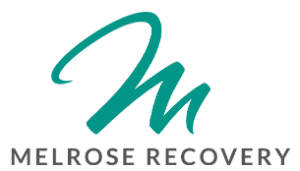Alcohol Ketoacidosis
Melrose Recovery, a safe, secure Alcohol Ketoacidosis recovery center, in the hills of Los Angeles
Alcohol ketoacidosis is a serious and potentially life-threatening condition that often results from heavy or binge drinking combined with poor nutrition. Most commonly affecting individuals between the ages of 20 and 60, it presents with distressing symptoms such as vomiting and abdominal pain.
At Melrose Recovery, we take a comprehensive approach to addressing alcohol ketoacidosis—focusing on its underlying causes, identifying symptoms, and exploring the full range of treatment options available to support your recovery.
Alcohol Ketoacidosis – Welcome to Melrose Recovery, your pathway to transformation and healing. Located in the vibrant heart of Los Angeles, California just moments away from iconic Hollywood and the picturesque beaches of Santa Monica and Venice, we are dedicated to changing lives. Since 2015, our comprehensive alcohol addiction treatment approach encompasses detoxification, residential care, and aftercare services, all tailored to meet each individual’s unique needs on their recovery journey.
Led by a compassionate team of addiction professionals and counselors, we offer a range of therapy programs designed to support and guide individuals suffering alcohol withdrawal toward lasting sobriety. At Melrose Recovery, we believe in the power of personalized care and diverse treatment options to pave the way for a brighter future.

Understanding Alcohol Ketoacidosis
Alcohol ketoacidosis (AKA)—also referred to as alcoholic ketosis or alcohol acidosis—is a serious condition that typically affects individuals who engage in heavy drinking while neglecting proper nutrition. When the body is deprived of essential nutrients due to poor dietary intake, especially during prolonged alcohol use, it begins to break down fat for energy. This process produces acidic substances known as ketones.
Ketones, such as acetone, are chemicals the body generates when it doesn’t have enough glucose (sugar) to use as fuel. An excessive buildup of ketones can create a dangerously acidic internal environment. If untreated, this can escalate into metabolic acidosis, a life-threatening condition.
Causes and Risk Factors of Alcohol Ketoacidosis
Alcohol ketoacidosis often arises after episodes of heavy or binge drinking, especially when alcohol is consumed in place of food. According to the National Institute on Alcohol Abuse and Alcoholism (NIAAA):
-
Men: Binge drinking is defined as 5 or more drinks within 2 hours or over 14 drinks per week.
-
Women: Binge drinking is defined as 4 or more drinks within 2 hours or over 7 drinks per week.
In addition to heavy drinking, several other risk factors can increase susceptibility to alcohol ketoacidosis, including:
-
Alcohol withdrawal
-
Liver disease
-
Peptic ulcers
-
Pancreatitis
-
Gallbladder inflammation
Signs and Symptoms of Alcohol Ketoacidosis
Symptoms of alcohol ketoacidosis can vary based on individual health, alcohol intake, and ketone levels. Common signs include:
-
Nausea and vomiting
-
Abdominal pain
-
Confusion or agitation
-
Loss of appetite
-
Fatigue
-
Dehydration
-
Rapid or deep breathing
-
Decreased alertness, which in severe cases can progress to coma
If any of these symptoms occur, immediate medical attention is critical. In the U.S., emergency services can be reached by dialing 911.
Diagnosis of Alcohol Ketoacidosis
To diagnose alcohol ketoacidosis, healthcare providers perform a combination of physical exams and laboratory tests, such as:
-
Blood alcohol level
-
Blood glucose level
-
Urinalysis (to detect ketones)
-
Amylase and lipase (to assess pancreatic function)
-
Arterial blood gas (to check acid-base balance and oxygenation)
-
Anion gap (evaluates electrolyte imbalances)
-
Blood chemistry panel (assesses metabolic function)
-
Blood urea nitrogen and creatinine (assess kidney function)
-
Serum lactate (evaluates lactate levels)
Potential Complications of Alcohol Ketoacidosis
If left untreated, alcohol ketoacidosis can result in severe health complications, including:
-
Pneumonia
-
Pancreatitis
-
Gastrointestinal bleeding
-
Encephalopathy (brain dysfunction)
-
Seizures
-
Coma
Treatment Options of Alcohol Ketoacidosis
Alcohol ketoacidosis is a medical emergency requiring immediate care, typically provided in an emergency department. Treatment often involves:
-
IV fluids to combat dehydration
-
Electrolyte and nutrient replacement, including magnesium, potassium, phosphorus, and thiamine
-
Continuous monitoring of vital signs and organ function
-
Intensive care for patients with severe symptoms or complications
While these treatments address the immediate crisis, they do not resolve the underlying issue—namely, alcohol dependence or alcohol use disorder (AUD). Ongoing care, including therapy, medication, and support systems, is essential for long-term recovery and prevention.
Preventing Alcohol Ketoacidosis
The most effective way to prevent alcohol ketoacidosis is to reduce or stop heavy alcohol consumption. However, for individuals with alcohol dependence or AUD, quitting alcohol can lead to dangerous withdrawal symptoms. In such cases, medical supervision is crucial.
A comprehensive recovery plan may include:
-
Medically supervised detoxification
-
Psychotherapy and behavioral therapy
-
Medication-assisted treatment
-
Support groups and long-term aftercare
Alcohol Addiction Treatment in Los Angeles – Alcohol Ketoacidosis
At Melrose Recovery, we offer evidence-based treatment tailored to individuals struggling with alcohol use. Our services include:
-
Therapies: Motivational interviewing, cognitive behavioral therapy (CBT), contingency management, group therapy, and 12-step programs
-
Medication management: To reduce cravings and withdrawal symptoms
-
Flexible care options: Including partial hospitalization programs (PHP) and intensive outpatient programs (IOP)
-
Telehealth services: Making care accessible even in remote or underserved areas
We believe in empowering individuals with the tools they need for lasting recovery and helping them reclaim their lives with dignity and support.
Frequently Asked Questions About Alcohol Ketoacidosis
General Understanding of Alcohol Ketoacidosis
What is alcoholic ketoacidosis?
Alcohol ketoacidosis (AKA) is a metabolic complication caused by excessive alcohol intake combined with poor nutrition, leading to the buildup of acidic ketones in the body.
What causes alcohol ketoacidosis?
It is caused by heavy alcohol consumption, especially when combined with inadequate food intake, leading to fat breakdown and ketone production.
Is alcohol ketoacidosis the same as diabetic ketoacidosis?
No. While both involve ketone buildup, diabetic ketoacidosis occurs due to insulin deficiency, whereas alcohol ketoacidosis is due to alcohol use and malnutrition.
Who is most at risk for alcohol ketoacidosis?
People with chronic alcohol use disorder who frequently binge drink and skip meals are at the highest risk.
Can someone with no history of alcohol abuse develop AKA?
It’s unlikely; AKA typically occurs in individuals with prolonged heavy alcohol use.
Causes and Risk Factors
What is a binge drinking episode?
For men, consuming 5+ drinks in 2 hours; for women, 4+ drinks in 2 hours.
What other medical conditions increase AKA risk?
Liver disease, pancreatitis, peptic ulcers, and gallbladder inflammation.
Does alcohol withdrawal contribute to AKA?
Yes. AKA often occurs during or shortly after alcohol withdrawal.
Can poor nutrition alone cause AKA?
No, but malnutrition combined with heavy alcohol use is a key contributor.
How does alcohol lead to ketone production?
Alcohol metabolism depletes liver glycogen and reduces insulin levels, prompting fat breakdown and ketone formation.
Signs and Symptoms
What are common symptoms of alcohol ketoacidosis?
Nausea, vomiting, abdominal pain, rapid breathing, fatigue, and confusion.
Is vomiting a typical symptom?
Yes. Vomiting is very common and can worsen dehydration.
Can AKA cause mental changes?
Yes. It may cause agitation, confusion, or even coma in severe cases.
How quickly do symptoms develop?
They usually appear after a recent binge, especially if food intake has been poor.
Is dehydration common in AKA?
Yes. Dehydration is a hallmark of the condition and can worsen acidosis.
Diagnosis and Testing
How is alcohol ketoacidosis diagnosed?
Through clinical history, physical exam, and lab tests such as blood alcohol level, ketone measurement, and acid-base balance.
What tests are used to confirm ketone levels?
Urine tests and blood tests for ketones are commonly used.
Why is arterial blood gas (ABG) important?
It helps assess the acid-base imbalance and severity of acidosis.
What is the anion gap, and why is it measured?
It measures the difference between electrolytes and helps identify metabolic acidosis.
Are kidney and pancreas functions tested?
Yes. Tests like creatinine, BUN, amylase, and lipase are used to assess organ function.
Treatment and Management
How is alcohol ketoacidosis treated?
Treatment includes IV fluids, electrolyte replacement, vitamins (especially thiamine), and monitoring in a hospital setting.
Is hospitalization necessary?
Yes. AKA is a medical emergency that requires prompt inpatient care.
Can alcohol ketoacidosis be fatal?
Yes, if untreated. But with proper care, it is usually reversible.
How long does recovery take?
It depends on severity, but most patients stabilize within a few days with appropriate treatment.
Can alcohol ketoacidosis recur?
Yes. Without addressing the underlying alcohol use disorder, there is a high risk of recurrence.
Don’t Wait to Look for a Drug Addiction Treatment Program
Health Insurance PPO Plans for Alcohol Ketoacidosis
PPO Plans for Melrose Recovery For Alcohol Ketoacidosis in Los Angeles, California
Finding effective treatment for drug and alcohol addiction is one of the most important steps in the recovery journey. For many individuals and families, navigating how to pay for rehab can be a major concern. Fortunately, Melrose Recovery, a leading addiction treatment center in Los Angeles, California, accepts a wide range of PPO (Preferred Provider Organization) health insurance plans, making high-quality care more accessible and affordable.
Why Choose Melrose Recovery?
Melrose Recovery offers a structured and supportive environment for individuals seeking recovery from substance use disorders. Their programs include:
-
Medical Detox
-
Residential Inpatient Treatment
-
Dual Diagnosis Treatment
-
Individual and Group Therapy
-
Aftercare Planning
What sets Melrose apart is their client-centered approach, experienced clinical team, and commitment to long-term recovery. Located in Los Angeles, the facility provides a safe and comfortable setting to begin healing.
What Are PPO Insurance Plans?
PPO insurance plans allow policyholders to see healthcare providers both inside and outside of their insurance network, usually without a referral. When it comes to addiction treatment, this flexibility can be vital.
Key PPO benefits for rehab coverage:
-
Out-of-network options: You can still receive coverage for facilities not directly in your provider’s network.
-
No referral needed: You don’t need a referral from a primary care physician to start treatment.
-
More provider choices: PPO plans give you more freedom to choose the rehab facility that fits your needs.
Does Melrose Recovery Accept My PPO Insurance?
Melrose Recovery works with most major PPO insurance providers, including but not limited to:
- Aetna
- AmeriHealth
- Anthem
- Blue Cross Blue Shield
- Cigna
- Hawaii Medical Service Association (HMSA)
- Humana
- Kaiser Permanente
- Medical Mutual
- Premera Blue Cross
- UnitedHealthcare
Melrose Recovery’s admissions team is available 24 hours a day 714-442-7782 to verify your insurance benefits quickly and confidentially. This process helps determine your coverage, deductible, co-pays, and out-of-pocket maximums before starting treatment.
Verifying Insurance Coverage
To find out if your PPO insurance plan covers treatment at Melrose Recovery:
-
Call Melrose Recovery directly – Speak with an admissions specialist who can walk you through the insurance verification process.
-
Submit insurance info online – Many treatment centers, including Melrose, offer a secure online form for quick verification.
-
Check with your insurer – You can also contact your insurance company directly and ask about your behavioral health benefits.
The Importance of Getting Help
Addiction is a chronic and progressive condition—but with the right support, recovery is absolutely possible. By accepting a variety of PPO plans, Melrose Recovery helps reduce financial barriers to care, so individuals and families can focus on healing rather than costs.
Take the First Step Today
If you or a loved one is struggling with addiction, don’t wait. Melrose Recovery in Los Angeles offers compassionate, evidence-based care in a supportive setting. With PPO insurance coverage, treatment may be more affordable than you think.
Contact Melrose Recovery today to learn more about admissions and insurance verification. Your path to recovery can start now.





Get In Touch
info@melroserecovery.com
501 North Mariposa Ave, Los Angeles, CA 90004



